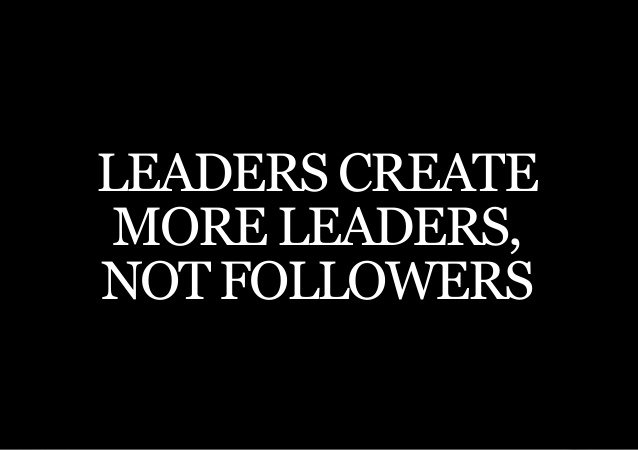
I have been observing the practice of leadership and parenting, which in many ways are similar.
As a parent, I have come to realize that I need not teach my son or my daughter how to be a better son, or daughter; rather I have to be a better parent.
The moment we shift our focus from directing our children to be better children, to role modelling how to be a better parent, the conflicts that arise between the parent and the child cease to exist.
I have observed in many cases, including my own, when a parent continues to coerce the child in amending his or her behavior, we keep perpetuating anger and frustration in the parent-child relationship.
When I think about my father, he was brilliant in role modelling how a parent should be. He seldom forced or coerced me; rather he would be patient and take the back seat, whenever we would break into an argument. As it is said, it takes two to fight and one to stop the fight.
My father instead of repeating his statements in anger would become silent and lead me silently by his behavior. In case of any argument, I would walk out on him, and after thirty minutes he would call me in a conciliatory tone, and invariably I would realize my mistake and make up.
Once I asked him, `why do you always make the first attempt to resolving the conflict or the `cold war`` he answered beautifully, `I love my grandchildren very much, and you are their gate keeper. If I am not on talking terms with you, I would not be in a position to talk to them.`
The gravity of his statement, I have started to realize now. In-order to convert an argument into an agreement, the first step is to agree with your child that she or he is upset. The mistake we commit often is that we try to win the argument by superior logic or righteousness, which seldom works when the child is upset. The moment the parent takes a back step, and the focus shifts from winning the argument and prevailing, to building the relationship between self and the child, the relationship blossoms.
There is a famous proverb among military professionals, `loose the battles but win the war.` The same thought can be applied by parents vis-`-vis their children, `loose the arguments but build the relationship.`
Same reasoning also bodes well as a leader, mature leaders influence, not coerce their team members. The leaders by anticipating the future are in a better position to influence their team members proactively. Gentle suggestions given in time prevent the need to shout and to command.
`A stitch in time saves nine` a proverb from the past inspires the leader to say meaningful things briefly that will encourage rather than discourage the juniors.
I wish all the readers to be better leaders and better parents.
Article by Vijay Michihito Batra


